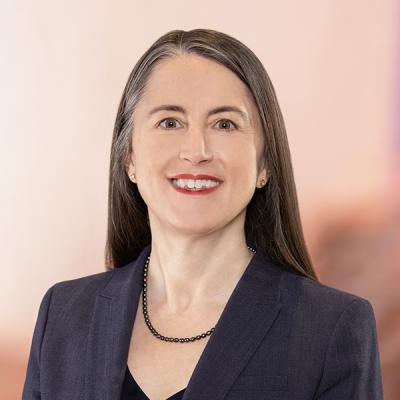Telephone and Texting Compliance News: Regulatory Update — October 2025
FCC Seeks Public Input on STIR/SHAKEN Extensions and Efficacy Review
The FCC’s Wireline Competition Bureau issued a Public Notice seeking comment on two Telephone Robocall Abuse Criminal Enforcement and Deterrence (TRACED) Act obligations related to implementation of the STIR/SHAKEN caller ID requirements. First, it seeks comment on whether it should revise or further extend implementation deadlines previously granted to certain types of providers. Second, it seeks comment on the effectiveness of STIR/SHAKEN, including the standard for assessing its effectiveness.
Revaluating STIR/SHAKEN Implementation Extensions
Under the TRACED Act, the Wireline Competition Bureau is required to annually assess any STIR/SHAKEN implementation extensions granted by the FCC. Currently, there are two ongoing extensions that the FCC previously granted due to undue hardship.
The first extension is for providers unable to obtain a Service Provider Code (SPC) token, which is essential for participating in the STIR/SHAKEN framework. The Bureau asks whether this extension remains necessary in light of the 2021 revisions to the SPC token access policies, which expanded SPC token eligibility. It notes, however, that some providers still face challenges in obtaining an SPC token and therefore remain unable to authenticate calls under STIR/SHAKEN.
The second extension concerns small voice service providers that originate calls via satellite using North American Numbering Plan numbers. These providers were previously deemed unlikely to transmit unlawful traffic, and therefore the burdens of STIR/SHAKEN implementation were considered disproportionate to any potential benefit. The Bureau now asks whether this balance has shifted and whether the extension should be sunset or revised.
Assessing STIR/SHAKEN’s Efficacy
The TRACED Act also requires the Bureau to prepare a report for Congress once every three years on the efficacy of the STIR/SHAKEN framework. In preparation for the second of these reports, the Bureau is soliciting feedback on how best to evaluate STIR/SHAKEN’s performance. In its first report in 2022, the Bureau evaluated STIR/SHAKEN under a standard that focused solely on the framework’s ability to authenticate caller ID information. It now asks whether it should expand or modify that standard to consider broader metrics, such as STIR/SHAKEN’s impact on preventing illegally spoofed calls or all illegal robocalls.
The Public Notice also notes that since the last report in 2022, the FCC has expanded the STIR/SHAKEN obligations to include gateway and intermediate providers, potentially enhancing its reach and effectiveness. The Bureau is interested in whether these changes, along with other technological and industry developments, have influenced STIR/SHAKEN’s efficacy. It also seeks comment on any inherent limitations of the framework and potential solutions to address them.
Comments on the above are due October 3, 2025, and reply comments are due October 20, 2025.
FCC Continues to Take Action on Deficient Robocall Mitigation Database Filings
On September 15, 2025, the FCC’s Enforcement Bureau issued an Order removing Chase Tech LLC from the Robocall Mitigation Database (RMD) after determining that Chase Tech submitted false information in its RMD certification. In conjunction with its removal of additional providers last month, this underscores the FCC’s continued focus on ensuring the integrity of the RMD and holding providers accountable for compliance failures.
The removal is the result of the Enforcement Bureau’s discovery that Chase Tech used the personally identifiable information (PII) of an unaffiliated individual in multiple fields required for RMD certification, including the field for the provider’s address and robocall mitigation contact information. While the unauthorized PII was removed, and Chase Tech was notified of the deficiency in April 2025, it failed to respond or provide any corrected information. The Bureau ultimately found that these failures constituted a willful violation of the FCC’s RMD rules and ordered Chase Tech’s certification removed.
Accordingly, effective September 17, 2025, all intermediate and voice service providers must cease accepting traffic from Chase Tech. The company is also barred from refiling in the RMD without prior approval from both the Enforcement Bureau and the Wireline Competition Bureau.
FTC Announces Do-Not-Call Registry Fee Increase
The Federal Trade Commission (FTC) announced that, effective October 1, 2025, the fees to access the national Do-Not-Call (DNC) Registry will increase by approximately 3%. In particular:
- The annual fee to access a single area code will increase from $80 to $82.
- The maximum annual fee for accessing area codes will rise from $22,038 to $22,626.
- The fee for accessing an additional area code for six months will increase from $40 to $41.
While the fee increases are modest, they serve as a reminder that compliance with the Telemarketing Sales Rule is important and carries ongoing operational costs. Businesses that make telemarketing calls should remember to budget for these annual increases, as they are required to subscribe to and scrub their calling lists against the DNC Registry under the rule. Failure to take these steps to avoid calling numbers listed in the DNC Registry may result in enforcement action, including significant monetary penalties or a private lawsuit.




